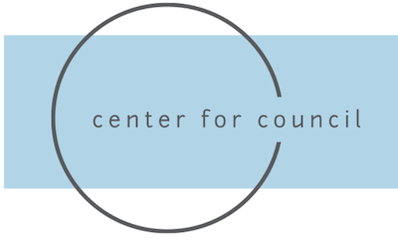 On April 6, 2018, I was found suitable for parole by the California Department of Corrections and Rehabilitation Board of Parole Hearings. The work I had done to transform my perspective and character had paid off. I had no idea that it was after I was granted parole that I would go through the real fire. The last 120 days of my sentence were the hardest, most challenging days of my time in prison. As soon as word got around that I would be out on parole, inmates who had never challenged me before became aggressive toward me. Not because they were bigger or badder than me, but because they knew I had something to lose. They knew that I wouldn’t respond to their advances the way that I would have in the past. It was then, as I was walking away from the insults and the challenges, that I realized that I was, in fact, ready for freedom. In all my years in prison, I had never been tested the way that I was during this time. I surprised even myself when I responded to their challenges with empathy and compassion. Nobody warned me about the anxiety that kicked in as the days turned into weeks and months. When you’re granted parole, there is a review process that can take up to 120 days. Your case goes before a review committee and then goes to the Governor for a final decision. Even though you may be granted parole, the decision is not final until the Governor’s review, or until the 120 days is up. I went from knowing my release date to not knowing. At any point during the review process, the Governor has the power to reverse or affirm the parole board’s decision. And if at any time during the process you get into trouble, that decision could be affected as well. I’ve never had so much hanging over my head. And still, this wasn’t the worst part. The worst part of my last 120 days was the toll that this waiting period began to take on my family. I had been away for approximately 17 years. I had never been physically present in my children’s lives; they were all born while I was incarcerated. The most time that we’ve ever spent together was in a “family visiting” cottage. Our lives were built around me being in prison. So, although we all were very excited about the news that I’d been granted parole, we had no idea what to expect. All we knew was that there were a lot of changes headed our way and the anticipation made it worse; the slow pace of the review process only added fuel to the fire. We caught ourselves arguing over things that we’ve never argued about before. So, there I was, trying to navigate the parole transition period, not doing anything that would jeopardize the parole board’s decision, while at the same time trying to handle family life and the anxiety of moving through all of it. There was a point where I began to feel overwhelmed and I decided to just sit in my cell and stay out of the way. I cut myself off from my routine, from the prison world, and in doing so, from some of the things that had been keeping me going in prison. I began to get agitated, angry, and frustrated that things weren’t moving along at the pace that I hoped or expected they would. I am thankful that I had the practice of Council to help me explore and hold all these emotions and unexpected twists and turns that life was throwing at me. As I was facilitating Council circles during this process, there were stories of patience and perseverance coming from my fellow inmates that helped me cope with the issues I was facing in my own life. If I didn’t have the skills that I had developed in Council—to find comfort in stillness, an ease in the unknowing, and the ability to listen to the stories of others—I believe I wouldn’t have made it through my last 120 days inside. It was in the collective wisdom of the Council circle where I found my strength and peace. It was there in the circle with my brothers where I found my way home.
0 Comments
We offer a deep bow of gratitude to Roshi Bernie Glassman, Zen pioneer and co-founder of the Zen Peacemakers, on this, the one-month anniversary of his passing. Bernie has left an extraordinary legacy and his work on framing the Three Tenets of the Zen Peacemakers -- Not Knowing, Bearing Witness and Compassionate Action -- has had a profound impact on Socially Engaged Buddhism in the United States and around the world... and are embedded in the work of Center for Council. Council has been a foundational practice of Zen Peacemakers' Bearing Witness Retreats to Auschwitz, Rwanda, Bosnia and Pine Ridge, among other places of great human suffering. Council is also practiced widely in sanghas throughout the world. In this short video, Bernie offers some reflections on the practice of Council: |
Categories
All
Archives
March 2024
|
|
|
About |
|


 RSS Feed
RSS Feed
